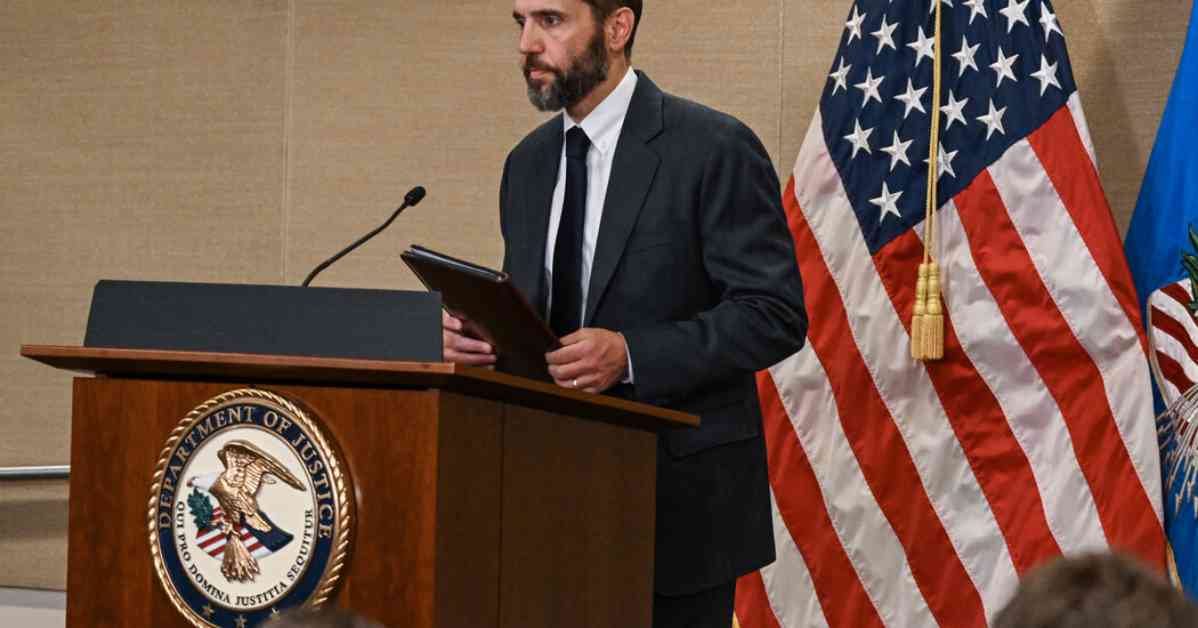A prominent free speech institute has urged a federal judge in Florida to disclose the content of a special counsel report related to a classified documents case involving former President Donald J. Trump. The request, directed to Judge Aileen M. Cannon of the Southern District of Florida, comes amid mounting pressure for transparency surrounding the report authored by former special counsel Jack Smith.
The report in question represents the second volume of a comprehensive document that Jack Smith compiled following the dismissal of federal criminal cases against Mr. Trump in light of his victory in the 2024 election. The report is shrouded in secrecy, with the first volume—a detailed account of Mr. Trump’s actions in contesting the 2020 election results—having been made public in January. However, the second volume, which delves into Mr. Trump’s handling of classified information post-presidency, remains concealed from public view.
Judge Cannon, who presided over the case and ultimately dismissed it, previously intervened to prevent the Justice Department from sharing the report with external parties during the final days of the Biden administration. She mandated that the department furnish her with a copy of the report, citing the need to safeguard the interests of Mr. Trump’s two co-defendants, whose cases were not dismissed alongside his.
The Justice Department has consistently maintained the stance that sitting presidents enjoy temporary immunity from prosecution, a position that has implications for the legal proceedings against Mr. Trump. The institute’s petition to disclose the report underscores the ongoing debate over the balance between transparency and legal protections, particularly in cases involving high-profile public figures.
Seeking Transparency: The Call for Public Disclosure
As the public awaits further clarity on the contents of the elusive second volume of the special counsel report, the demand for transparency grows louder. The free speech institute’s appeal to Judge Cannon underscores the importance of upholding First Amendment rights by enabling access to critical information that impacts the public interest.
Expert legal commentators emphasize the significance of transparency in cases involving public officials and the handling of classified materials. According to renowned legal scholar Dr. Emily Parker, “The public’s right to information, especially in matters of national significance, is fundamental to maintaining accountability and upholding the principles of democracy.”
In a society where transparency and accountability are increasingly valued, the push for the disclosure of the special counsel report serves as a litmus test for the legal system’s commitment to openness and fairness. As the legal battle unfolds, the public remains invested in the outcome, eager to gain insights into the intricacies of the case and its implications for future governance.
The Debate Over Presidential Immunity: Legal Implications and Ethical Considerations
Central to the controversy surrounding the special counsel report is the question of presidential immunity and its implications for accountability. The Justice Department’s stance on the temporary immunity of sitting presidents raises complex legal and ethical considerations that have far-reaching consequences for the rule of law.
Legal scholars and constitutional experts continue to debate the extent to which presidential immunity should shield public officials from legal scrutiny. Professor James Roberts, a leading authority on constitutional law, notes, “The concept of presidential immunity is rooted in the need to protect the executive branch from undue interference, but it must be balanced with the imperative of ensuring that no individual is above the law.”
The ongoing legal saga surrounding the special counsel report underscores the delicate balance between preserving the integrity of the presidency and upholding the principles of justice and accountability. As the case unfolds, the public remains vigilant, eager to witness how the legal system navigates the complex terrain of presidential immunity and the disclosure of critical information.
Thank you for your patience while we verify access. If you are in Reader mode please exit and log into your Times account, or subscribe for all of The Times. Thank you for your patience while we verify access. Already a subscriber? Log in. Want all of The Times? Subscribe.

